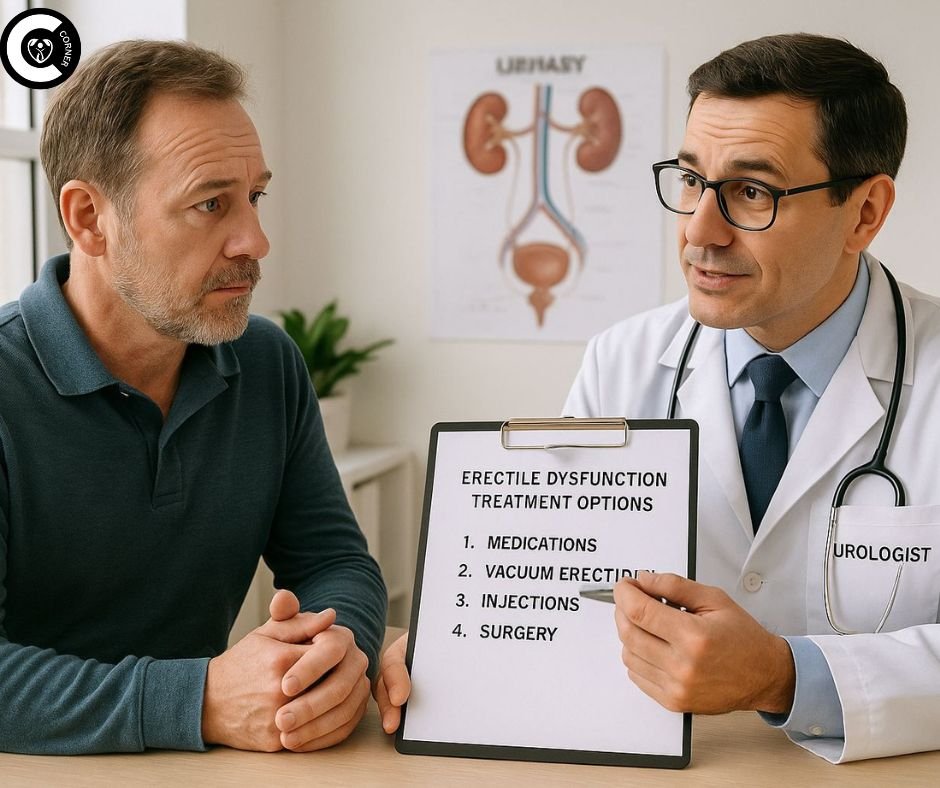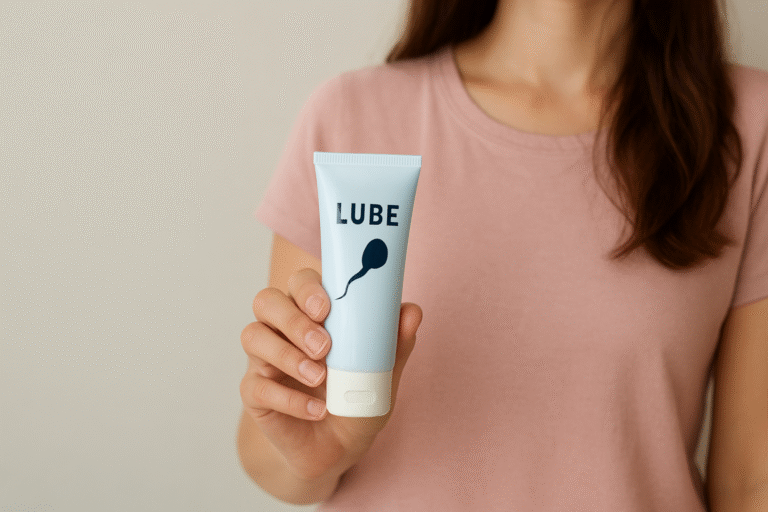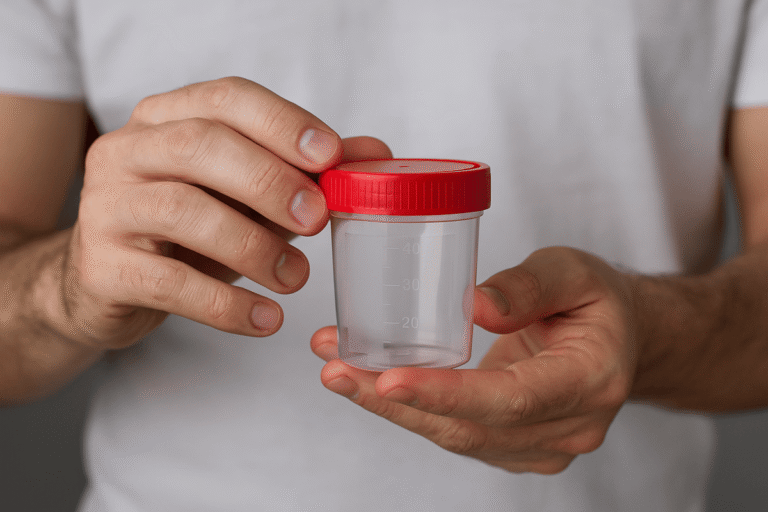Erectile dysfunction (ED), often known as male impotence, is a problem that many men have at some time in their life. It’s natural to have trouble getting or keeping an erection from time to time, and this is generally due to short-term reasons like stress or tiredness. However, if these problems happen all the time, they could be a sign of something more serious. A lot of guys are ashamed or don’t want to talk about this, but it’s important to know the difference between natural changes and possible health problems in order to be sexually and overall healthy.
This article will go into great detail about male impotence, explaining what normal erectile function is, the different causes of erectile dysfunction, when to see a doctor, and the best ways to cure it. By the end of this guide, you will know more about ED and what you can do to fix it.
What Is Male Impotence (Erectile Dysfunction)?
Erectile dysfunction (ED), often known as male impotence, is the inability to get or keep an erection strong enough for good sexual performance on a regular basis. It’s natural for guys to have trouble getting an erection from time to time because of things like stress or being sleepy. But if these problems happen all the time, they can have a big effect on self-esteem, relationships, and quality of life.
How Common Is Erectile Dysfunction?
A lot more men than they think have erectile dysfunction. Studies show that more than 30 million men in the United States have some form of ED. The problem gets worse with age; by age 40, over 40% of men have it, and by age 70, almost 70% of men have it. It’s crucial to remember that ED isn’t something that happens to everyone as they get older. Younger men might also have it because of mental health issues or lifestyle choices.
Is Occasional ED Normal?
Yes, it’s typical to have trouble getting an erection from time to time, and it’s usually not a big deal. Stress, tiredness, drinking too much alcohol, or even performance anxiety can all affect sexual function for a short time. However, if ED happens more than half the time, it could be a sign of a health problem that needs medical care.
What Causes Male Impotence?
To stop and cure erectile dysfunction, you need to know what causes it. There are several things that might cause ED, including physical, mental, and lifestyle problems.
Physical Causes of Erectile Dysfunction
- Cardiovascular Issues: Poor blood flow is one of the most common physical reasons for ED. Atherosclerosis (hardening of the arteries) and other conditions can make it hard for blood to flow to the penis, making it hard to get or keep an erection.
- Diabetes: Over time, high blood sugar levels can hurt nerves and blood vessels, which can cause erectile dysfunction. guys with diabetes are three times more likely to have ED than guys who don’t have the disease, according to research.
- Hormonal Imbalances: Testosterone is very important for how men have sex. Low levels of testosterone can make you less interested in sex and lead to ED. Difficulties with other hormones, like thyroid difficulties, can also be a factor.
- Neurological Disorders: Conditions such as Parkinson’s disease, multiple sclerosis, or spinal cord injuries might stop the nerve signals needed for an erection.
- Medications: Some prescription drugs, like antidepressants, blood pressure meds, and sedatives, might make ED worse by having adverse effects.
Psychological Causes of Erectile Dysfunction
- Stress & Anxiety: Stress at work, performance anxiety, or money problems can all make it hard to get an erection for a short time. The anxiety of not being able to do something can make the condition worse over time.
- Depression: Mental health problems like depression are very closely associated to ED. Depression can impair your sex drive and libido, which can make it tougher to get an erection.
- Relationship Issues: Problems in a relationship, like poor communication, unresolved disputes, or not being emotionally close to a spouse, can also lead to erectile dysfunction.
Lifestyle Factors Contributing to ED
- Smoking: Using tobacco harms blood vessels and slows down blood flow, which is necessary for getting an erection.
- Excessive Alcohol: A drink or two may make you less shy, but too much alcohol can damage nerves and make it harder to have sex.
- Obesity: Being overweight can cause hormonal imbalances, heart disease, and diabetes, all of which make ED more likely.
- Sedentary Lifestyle: Not getting enough exercise can make your blood flow poorly and make it harder to get an erection.
When Should You Worry About Erectile Dysfunction?
It’s natural to have erection problems from time to time, but if they happen all the time, it could mean something more severe is going on. Here are some important symptoms that you should see a doctor:
Red Flags for Male Impotence
- Frequent Erection Problems: If you have trouble getting or keeping an erection more than half the time, you should see a doctor.
- Sudden Onset ED: If a young man suddenly can’t get an erection, it could mean he has diabetes or heart trouble.
- Frequent Erection Problems: Men usually have erections while they sleep. If they stop happening, it could mean that ED has a physical cause.
- Painful Erections: If you feel pain or discomfort during an erection, it could be a sign of Peyronie’s disease (scar tissue inside the penis) or an infection.
If you have any of these symptoms, you should see a urologist or other healthcare professional to get a correct diagnosis.
Also Read: Learn About The Reasons for Low Libido In Women
How Is Erectile Dysfunction Diagnosed?
A combination of medical history, physical exams, and specific diagnostics is usually used to diagnose ED.
Medical History & Physical Exam
- Your doctor will ask about your symptoms, sexual history, and any other health problems you may have.
- Checking blood pressure, heart health, and testosterone levels may be part of a physical exam.
Lab Tests
- Blood testing can help find diabetes, excessive cholesterol, or hormonal abnormalities that can be causing ED.
Specialized Tests
- Nocturnal Penile Tumescence (NPT) Test: This test checks for nighttime erections to see if the problem is physical or mental.
- Doppler Ultrasound checks for vascular issues by looking at blood flow to the penis.
Effective Treatments for Male Impotence
The good news is that most cases of erectile dysfunction can be treated. Depending on the cause, treatment options may include:
Lifestyle Changes
- Exercise Regularly: Moving around more will increase blood flow and raise testosterone levels.
- Healthy Diet: A healthy diet includes a lot of fruits, vegetables, whole grains, and lean proteins. This is good for your heart.
- Quit Smoking & Limit Alcohol: Stop smoking and drinking too much alcohol. Cutting back on these two things can make a big difference in how well your penis works.
Medications
- PDE5 Inhibitors (Viagra, Cialis, Levitra): These medications help blood flow to the penis and work for a lot of men.
- Testosterone Replacement Therapy: Testosterone Replacement Therapy is a good idea for men who have low testosterone levels that are clinically low.
Psychological Counseling
Psychological Counselling Therapy can help with anxiety, sadness, or relationship problems that are making ED worse.
Medical Procedures
- Penile Implants: Penile implants are a surgical option for men with severe ED who don’t respond to other treatments.
- Vascular Surgery: Vascular surgery fixes clogged blood vessels so that blood can flow properly again.
Conclusion
It’s natural for men to have trouble getting an erection from time to time, but they shouldn’t dismiss it if it happens all the time. Knowing what causes erectile dysfunction and getting medical help right away can lead to effective treatments that restore sexual function and make life better.
If you have ED often, don’t be afraid to see a doctor. There is help available, and many men notice big improvements with the correct treatment.





[…] Also Read: Learn About The Causes Of Male Impotence […]
[…] How to Recognize the Severity of Erectile Dysfunction in Men […]